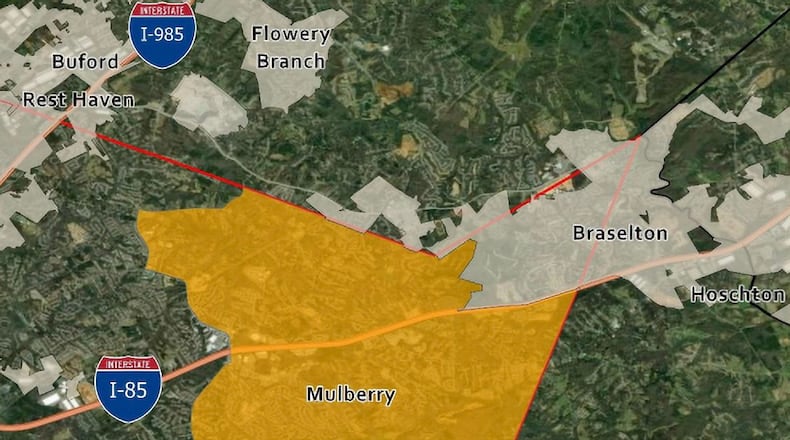Voters in northeastern Gwinnett County appeared to approve incorporation of a new city, named Mulberry, that Republican legislators proposed months ago to control zoning after a developer applied to build hundreds of apartments within a 26-square-mile area that currently has no multi-family housing.
“I feel this is a new day for our community, allowing residents to have local control of planning and zoning without imposing a city property tax,” said state House Majority Leader Chuck Efstration, a Republican who led the charge for the new city and lives in its proposed boundaries. “Now the real work begins of the voters choosing the new leadership of the city, empowering residents to have a voice in future growth.”
Results are unofficial until they are certified.
With about 41,000 residents, Mulberry would be the second-largest city in Gwinnett County by population and its largest by land area. The northern and eastern borders are the Hall and Barrow County lines and the city of Braselton. The southern and western borders match those of Efstration’s district. Support was strongest in a central swath of the proposed footprint, while northern precincts were more divided and a southern precinct was opposed.
The new city would also be wealthier than the county as a whole, and it would be majority white in a county that is now less than 36% white.
According to the charter, Mulberry would be ruled by a five-member city council that would choose one of its own as mayor. City council elections will take place on the November ballot.
Gov. Brian Kemp can also appoint a committee to shepherd the new city through a transition phase.
Mulberry would provide planning and zoning, code enforcement and storm water services, but its leaders will have to negotiate with Gwinnett County, and potentially other local governments or private companies, for other functions such as police, parks and public works.
The charter says the city cannot impose a property tax or offer additional services unless residents approve in another referendum. Those provisions inspired a lawsuit seeking to invalidate the incorporation question, on the grounds that the charter unconstitutionally infringes on a city council’s home rule powers. A Gwinnett County Superior Court judge last week stayed the lawsuit pending the results of the incorporation vote.
City councils may amend charters without holding a referendum, according to state law.
About the Author
Keep Reading
The Latest
Featured



